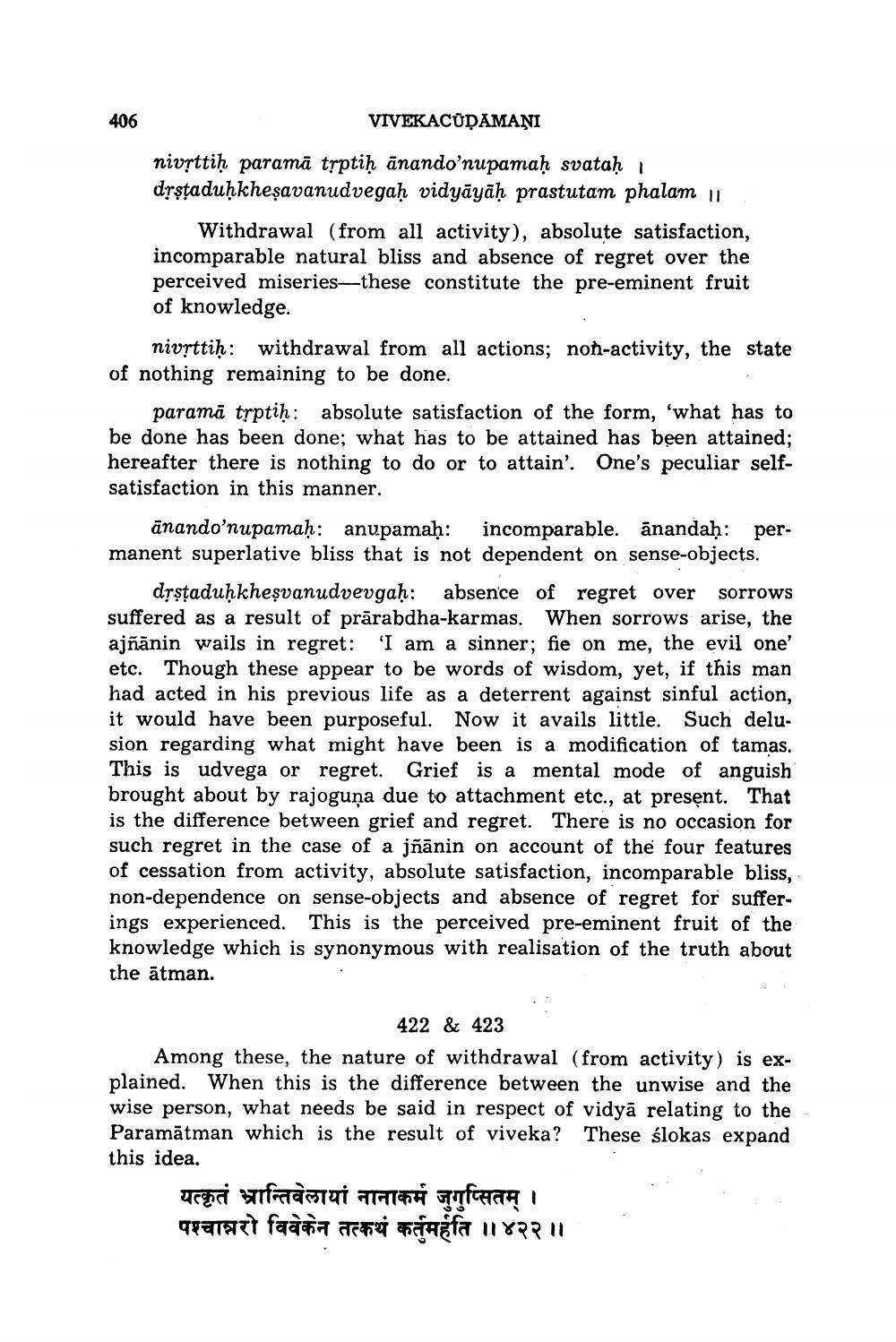________________
406
VIVEKACŪDAMANI
nivrttiḥ paramā tặptiḥ ānando'nupamaḥ svataḥ drstaduḥkheşavanudvegaḥ vidyāyāḥ prastutam phalam 11
Withdrawal (from all activity), absolute satisfaction, incomparable natural bliss and absence of regret over the perceived miseries—these constitute the pre-eminent fruit of knowledge.
nivșttiḥ: withdrawal from all actions; non-activity, the state of nothing remaining to be done.
paramā tịptiḥ: absolute satisfaction of the form, 'what has to be done has been done; what has to be attained has been attained; hereafter there is nothing to do or to attain'. One's peculiar selfsatisfaction in this manner.
ānando'nupamaḥ: anupamaḥ: incomparable. anandaḥ: permanent superlative bliss that is not dependent on sense-objects.
drstaduḥkhesvanudvevgaḥ: absence of regret over sorrows suffered as a result of prārabdha-karmas. When sorrows arise, the ajñānin wails in regret: 'I am a sinner; fie on me, the evil one' etc. Though these appear to be words of wisdom, yet, if this man had acted in his previous life as a deterrent against sinful action, it would have been purposeful. Now it avails little. Such delusion regarding what might have been is a modification of tamas. This is udvega or regret. Grief is a mental mode of anguish brought about by rajoguņa due to attachment etc., at present. That is the difference between grief and regret. There is no occasion for such regret in the case of a jñānin on account of the four features of cessation from activity, absolute satisfaction, incomparable bliss, non-dependence on sense-objects and absence of regret for sufferings experienced. This is the perceived pre-eminent fruit of the knowledge which is synonymous with realisation of the truth about the atman.
422 & 423 Among these, the nature of withdrawal (from activity) is explained. When this is the difference between the unwise and the wise person, what needs be said in respect of vidyā relating to the Paramātman which is the result of viveka? These ślokas expand this idea.
यत्कृतं भ्रान्तिवेलायां नानाकर्म जुगुप्सितम् ।। पश्चान्नरो विवेकेन तत्कथं कर्तुमर्हति ॥४२२ ॥




